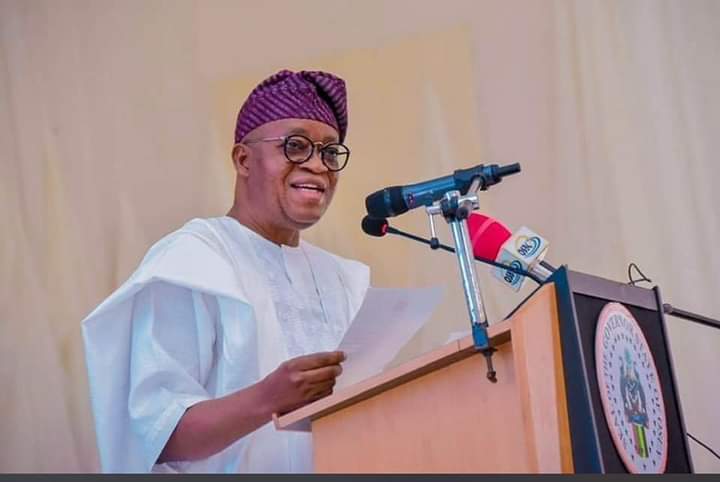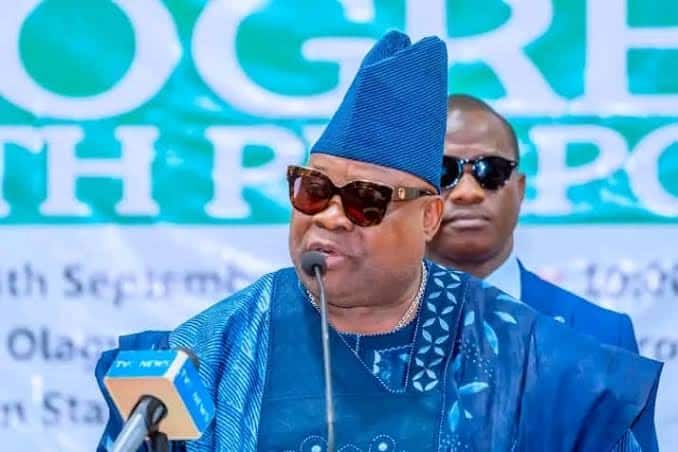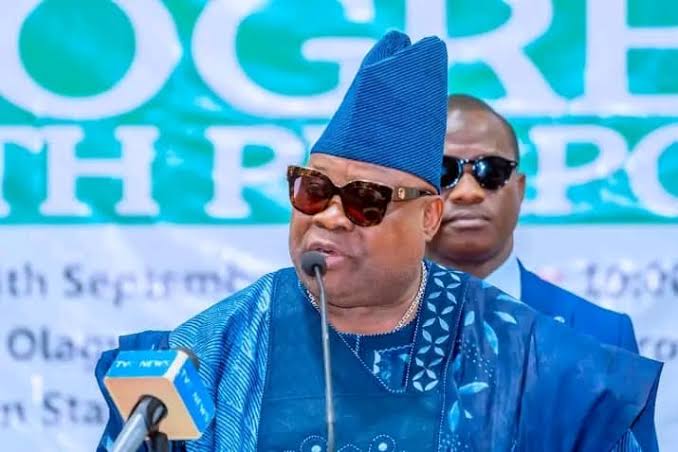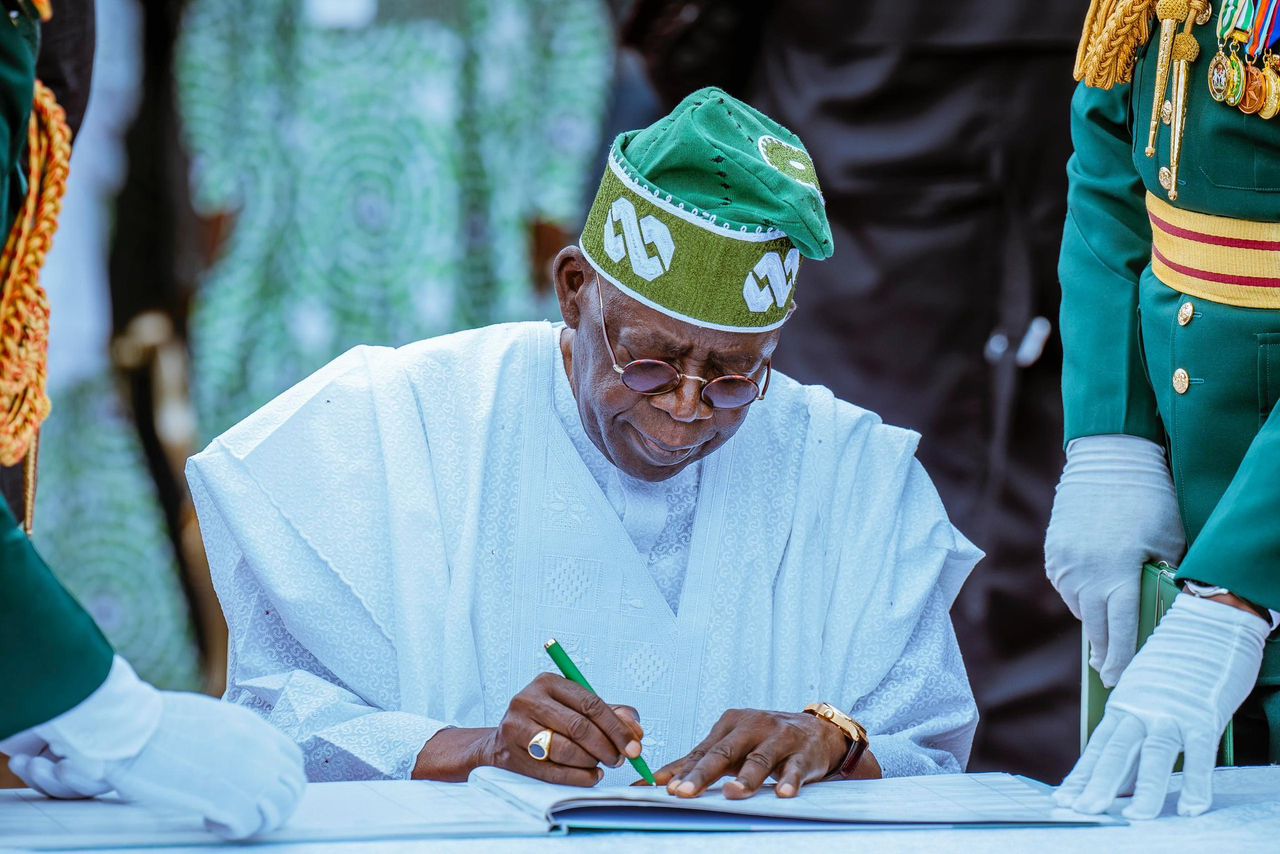The federal government has announced plans to elevate Nigeria’s maritime sector to global prominence by accelerating its development, increasing its GDP contribution, and harnessing its potential for the benefit of current and future generations.
Minister of Marine and Blue Economy, Adegboyega Oyetola, revealed this during a stakeholders’ workshop on the National Policy on Marine and Blue Economy held in Lagos on Tuesday.
According to the Minister, Nigeria has made significant strides in maritime governance, including ratifying and domesticating international protocols and conventions.
These efforts have enhanced the country’s safety and security framework, leading to an impressive three-year period without any incidents of piracy in Nigerian waters.
Oyetola also announced that the Ministry is finalizing a comprehensive policy addressing critical areas aligned with the goals of President Bola Tinubu’s administration to strengthen the national economy through maritime and blue economy initiatives.
A robust National Policy, Oyetola said: “will ensure that we address these issues through a comprehensive framework that aligns with international best practices while safeguarding our marine resources for future generations.”
The new policy, the Minister said, aims to provide a blueprint for effective management and coordination among relevant Ministries, Departments, and Agencies (MDAs), and Stakeholders within the value chain for harmonising national actions in the maritime sector.
He said: “It gives me great pleasure to welcome you all to this workshop on the validation of the National Policy on Marine and Blue Economy. I extend my gratitude to all stakeholders present, including our Directors, Technical Officers, and Heads of Agencies, who have consistently demonstrated unwavering commitment to advancing Nigeria’s blue economy agenda.
Oyetola said the blue economy “is a transformative pathway for nations seeking to balance economic growth with environmental sustainability. For Nigeria, with over 853 kilometers of coastline, extensive inland waterways, and a vast exclusive economic zone, the marine environment holds unparalleled opportunities.”
These, the Minister said, “range from fisheries and aquaculture to shipping, tourism, and renewable energy. However, these opportunities come with challenges: unsustainable practices, environmental degradation, and illegal activities, such as Illegal, Unreported, and Unregulated (IUU) fishing.
This validation workshop is a milestone in our efforts to elevate Nigeria’s marine and blue economy. It is a product of diligent and inclusive policymaking that underscores our Ministry’s commitment to collaboration and precision. The Federal Ministry of Marine & Blue Economy has painstakingly developed strategies to guide the sustainable use of our marine resources.”
These efforts, he said, “supported by partnerships with the African Union Inter-African Bureau for Animal Resources (AU-IBAR) and other stakeholders, include the finalisation of policies on fisheries and aquaculture in collaboration with WorldFish. These critical contributions are vital inputs into the National Policy on Marine & Blue Economy.
On the recurring spate of boat mishaps, Oyetola underscored the pressing need for immediate action, saying, “This policy seeks to implement comprehensive strategies to ensure the safety of all waterways. However, challenges such as the spate of boat mishaps demand urgent attention, and this policy aims to establish comprehensive measures to enhance safety across our waterways.
“As we develop this policy, the Ministry remains committed to repositioning Nigeria as a dominant player in the marine and blue economy both regionally and globally. We are also pursuing Nigeria’s candidacy for election into Category C of the International Maritime Organization (IMO), which underscores our determination to strengthen our voice in global maritime governance.”
The government, he said, “is actively seeking private sector investment for port modernization, which is critical for boosting Nigeria’s competitiveness and attracting sustainable funding for the sector. These efforts are integral to ensuring that our policies translate into tangible progress and measurable outcomes.
Oyetola said he was “Pleased to acknowledge the efforts that have brought us to this stage. The initial consultations and technical drafting processes have produced a draft policy that is both inclusive and forward-looking. This validation workshop represents the culmination of those efforts.
“Our goal today and in the coming days is to critically evaluate the policy, ensuring that it addresses the needs of all stakeholders, incorporates global standards, and positions Nigeria as a regional leader in the blue economy. As we deliberate, let us embrace open and constructive dialogue. Your insights and expertise are vital for shaping a national policy that addresses critical issues such as safety, security, and sustainability in Nigeria’s marine and blue economy” the Minister said.
In his address, the Permanent Secretary in the Ministry, Olufemi Oloruntola said, the validation workshop is a key step in shaping the National Policy on Marine and Blue Economy, a framework designed to address Nigeria’s specific needs and aspirations while embracing sustainable development principles.
The discussions at the workshop, Oloruntola said: “will ensure that the final document reflects practical solutions and innovative strategies, paving the way for a marine and blue economy that supports economic growth, job creation, and environmental sustainability.
He commended the technical team and all stakeholders who have worked tirelessly to bring us to the stage they are.









